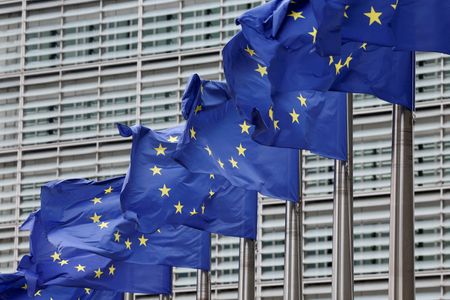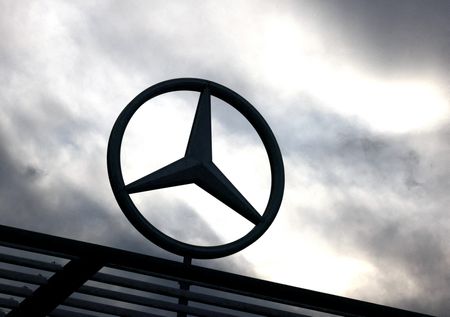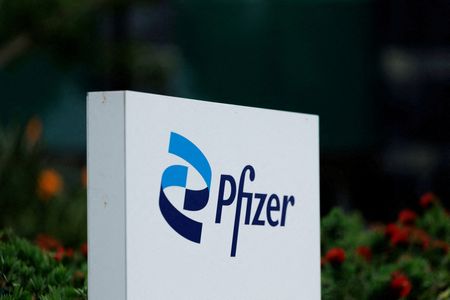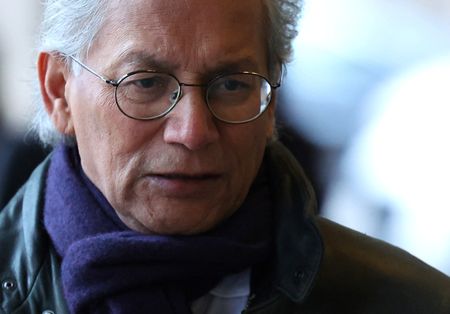By Jan Strupczewski
BRUSSELS (Reuters) -The European Union will on Thursday discuss two main ways to raise financial support for Ukraine – borrowing the money, or the more likely option of using frozen Russian assets, a senior EU official said.
EU finance ministers are meeting in Brussels after the bloc’s leaders pledged on October 23 to cover Ukraine’s needs for 2026-2027, and asked the European Commission to prepare options on how to do that.
The EU official close to the talks said the Commission’s options paper was not ready yet, but there were only two realistic ways to provide the 130-140 billion euros ($152-163 billion) Ukraine is likely to need.
One was to use the frozen Russian assets, as proposed by the Commission. Russia said last month any such move would be illegal and threatened to deliver a “painful response”.
The other was for EU governments to borrow the funds on the market, but this would involve paying interest.
Most of the Russian assets frozen in Europe are on the accounts of Belgian securities depository Euroclear. Since Moscow’s invasion of Ukraine in February 2022, almost all of the securities have matured and become cash.
The option involving frozen assets would mean the EU would replace the Russian cash on Euroclear accounts with zero-coupon AAA bonds issued by the European Commission.
The cash would then go to Kyiv, which would only repay the loan if it eventually gets war reparations from Russia, effectively making the loan a grant and making Russian reparations available before the war ends. The option is called the Reparations Loan, because it would be linked to Russia paying reparations.
PREFERENCE FOR USE OF RUSSIAN FROZEN ASSETS
Under that arrangement, the only financial contribution on the part of European Union governments would be to guarantee the Commission loans issued for Euroclear. The risk that the guarantees would be called upon is very small because EU governments themselves decide when to release the frozen Russian assets.
“In my mind EU leaders will opt for the reparations loan model,” the senior EU official said.
But Belgium, which is home to Euroclear, believes it would be liable in case of a successful Russian lawsuit against the company. It wants EU governments to pledge they would come up with the necessary cash to repay Moscow within three days if a court ever decided that the assets must be returned.
EU government officials say that, even though it was unlikely ever to be needed, mobilising potentially more than 100 billion euros in three days would be a big challenge for the EU.
Belgium also wants the Commission to produce a solid legal base for the whole operation to minimise the risk of a lost lawsuit and has asked other EU countries that hold frozen Russian assets to join the scheme to spread responsibility.
The Commission is now in talks with Belgium to address its demands with a view to securing support of EU leaders for the plan in December.
The other option would be for EU governments to borrow on the market and pass the cash on to Ukraine.
This is for them a far less appealing option because it would increase debt levels of many already highly indebted EU countries and entail paying annual interest for the duration of the loan, either by Ukraine, which can ill afford it, or by the EU. ($1 = 0.8575 euros)
(Reporting by Jan Strupczewski; Editing by Andrew Heavens)









